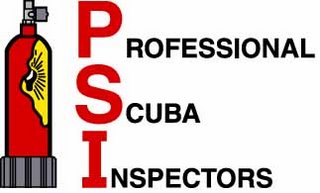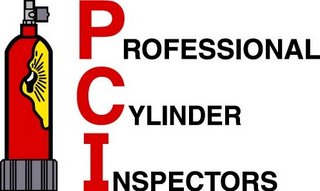
March 29, 2008
Worldwide Training in High Pressure Cylinder Safety
Greetings,
Thank you for your interest in the upcoming PSI/PCI Visual Cylinder Inspector training.
The next course in your area will be held Saturday, March 29, 2008 in Washougal, Washington starting at 9:00 am.
This certification course teaches the basics of conducting the annual visual inspections of solid wall and composite SCUBA and SCBA cylinders. The 7 - 8 hour course is suited for those new to visual inspection well as those who have been inspecting without formal training through its wide range of inspection subjects including damage limits, neck cracking, and laws affecting inspectors.
In addition, this course meets the OSHA and DOT requirements for employee HAZMAT training and attendants completing the course are qualified to conduct "in-house" HAZMAT training for cylinder handlers.
Previously certified inspectors may attend this full course or the Refresher Course for re-qualification at a reduced rate. The course is open to anyone 16 years or older and no previous cylinder inspection experience is required. Participates receive certification as Visual Cylinder Inspectors upon course completion.
The course tuition is $350.00 and includes the text book "Inspecting Cylinders" by Bill High, a course curriculum workbook; supplemental materials and certification are also included.
If you have any other questions before the class is scheduled feel free to contact me directly.
Thanks again for you interest in our training program.
Regards,
Phil Graf
PSI Instructor # 130
omnidive@omnidivers.com
For more information about Visual Cylinder Training, both SCBA and SCUBA, contact omnidive@omnidivers.com.
Link at
www.omnidivers.com/visualcylinderinspection.html.
Link at
www.omnidivers.com/visualcylinderinspectionclasses.html
Thank you for your interest in the upcoming PSI/PCI Visual Cylinder Inspector training.
Please email omnidive@omnidivers.com if you are interested or want additional information.




